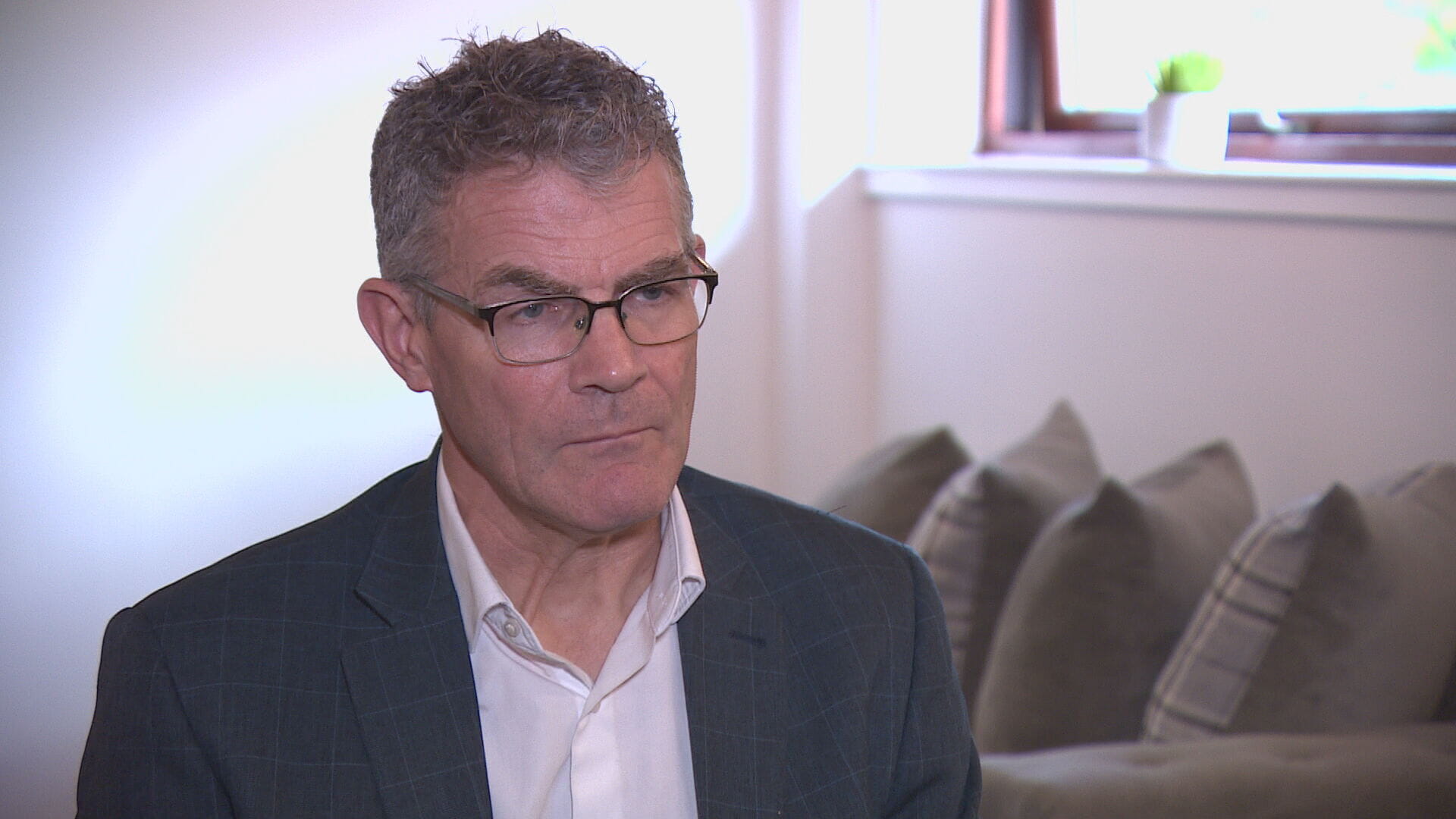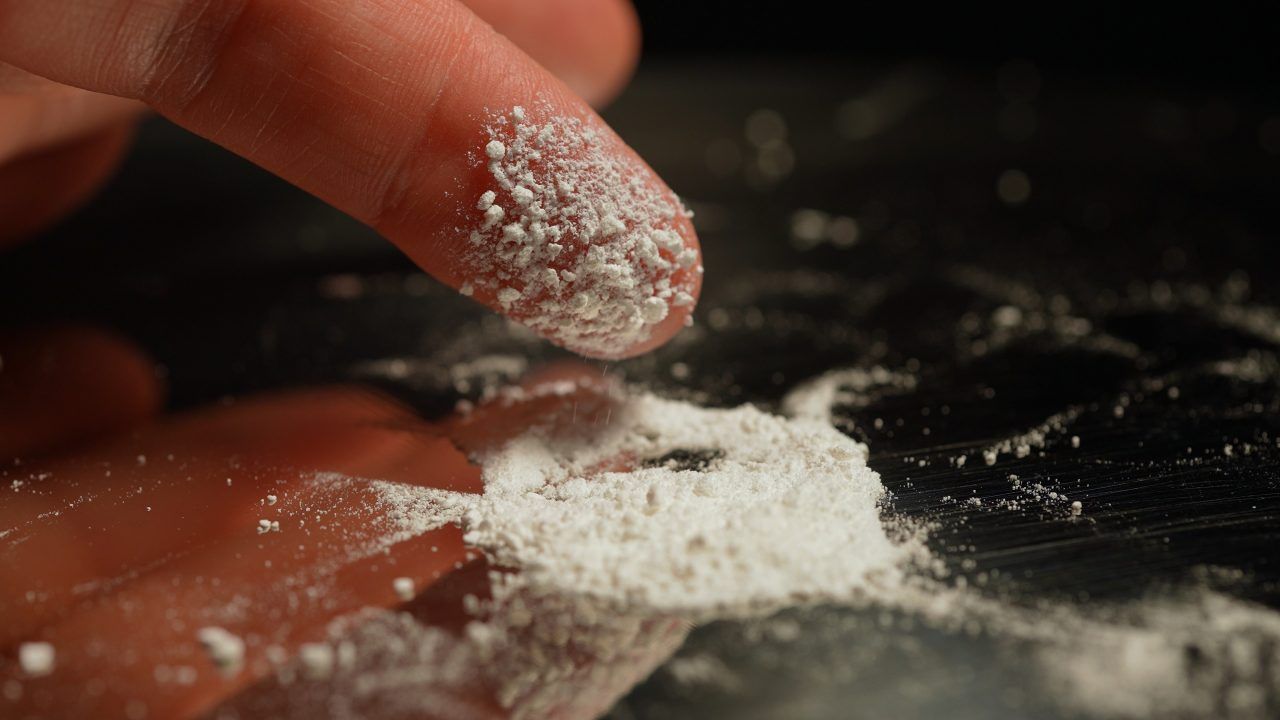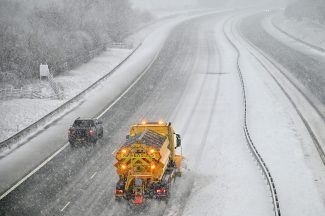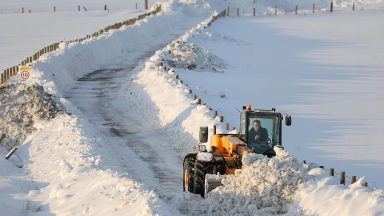Key Points
-
 Street Assist volunteers warn use of ketamine has become ‘social norm’ among young Scots
Street Assist volunteers warn use of ketamine has become ‘social norm’ among young Scots -
 UK wastewater analysis, covering 46% of Scotland’s population, suggests consumption surged by 85% between 2023 and 2024
UK wastewater analysis, covering 46% of Scotland’s population, suggests consumption surged by 85% between 2023 and 2024 -
 Recovering addict says dependence on drug led her to consider taking her own life
Recovering addict says dependence on drug led her to consider taking her own life -
 Addiction treatment centre warns country is on verge of ‘something potentially devastating’
Addiction treatment centre warns country is on verge of ‘something potentially devastating’
Ketamine use among Scotland’s youth is continuing to rise, with one recovering addict telling STV News her dependence on the drug led her to consider taking her own life.
The rapid-acting anaesthetic, common in medical settings, is being increasingly used as a party drug.
It distorts perceptions of sight and sound and makes the user feel disconnected and not in control.
When used illegally, it can cause serious problems with the liver and also the bladder, which can stop working completely and may even need to be removed.
Have you been impacted by ketamine use?
Tell STV News your story.
Street Assist, a group of volunteers who help revellers on nights out if they get into trouble, told STV News using ketamine was becoming a social norm among young people with 90% of callouts suspected to involve the drug.
According to UK wastewater analysis, covering 46% of Scotland’s population, ketamine consumption surged by 85% between 2023 and 2024.
The drug has been in the spotlight after it led to the death of Friends star Matthew Perry. The richest man in the world Elon Musk was recently accused of using large amounts of ketamine while in the White House as an advisor to President Donald Trump.
 Getty Images
Getty ImagesMusk has spoken about his use of ketamine as a treatment for depression but has denied recent and excessive use.
‘I couldn’t stop taking it’
A 22-year-old student from Aberdeen, whom we are calling Emily, is among those in recovery.
Emily started taking ketamine when she was 18, but her usage soon spiralled out of control.
“I would just do it by myself”, she told STV News.
“Over the space of a few years, seven grams would last me two weeks, then I’d be going through seven grams a day.
“Ketamine is so easy to get hold of… I could get my hands on ketamine within ten or 15 minutes… I could have it delivered to my door”
Emily, recovering ketamine addict
“For me, health-wise, my liver was affected badly, I was in severe pain if I was using too much, and painkillers weren’t helping, but I couldn’t stop taking it.
“I was so addicted, sometimes I would be screaming in agony, and I would still be taking it.”
Figures released in April this year showed that deaths related to ketamine are up 650% since 2015, with new figures showing one death ‘each week’ involving the drug across the UK.
Data released by the Office for National Statistics (ONS) and obtained by The UKAT Group showed three times as many women are losing their lives to the drug since before the Covid pandemic, with deaths from those under 30 years old involving the drug seeing a 300% rise in as many years.
The statistics show where the drug has been listed on a person’s death certificate.
Among those who have lost their lives to the drug is RuPaul’s Drag Race UK winner The Vivienne.
James Lee Williams was found dead at the age of 32 at their home in Cheshire on January 5.
Their family said in a statement that the performer had died after taking the drug.
They added: “I hope that by us releasing this information we can raise awareness about the dangers of ongoing ketamine usage and what it can do to your body.
“Ketamine usage is on the rise, particularly amongst young people, and I don’t think the full dangers of the drug are being discussed.”
The scale of the issue is reflected in the number of seizures being reported by Police Scotland.
In 2020-21, less than 3,000 grams of ketamine were seized by police. By the following year, that figure had quadrupled to 12,000 grams.
‘The worst pain I’ve ever felt in my life’
Users have reported long-term health issues, including bladder problems and ketamine-induced cramps.
Emily is among those to experience the cramps.
“I know for a lot of people it’s their bladder affected, but for me it’s ket cramps – it’s your liver and gall bladder not able to cope with the ketamine”, she explained.
“It is the worst pain I’ve ever felt in my life.
“Ketamine is so easy to get hold of, especially on social media, even now I could get my hands on ketamine within ten or 15 minutes… I could have it delivered to my door.
“It’s so much cheaper than cocaine, which would be £80 for a gram, but I could get seven grams of ket for the same price.”
Emily lost relationships and dropped out of uni because of her addiction.
“The guilt of my addiction was something I really struggled to cope with to the point where I did consider taking my own life because of it, because I felt so low, it was such a dark place.”
Ketamine is currently controlled as a Class B substance under the Misuse of Drugs Act 1971, putting it on par with cannabis and amphetamines.
The maximum penalties for production and supply of a Class B substance are 14 years’ imprisonment and/or an unlimited fine, while the maximum penalty for possession is up to five years’ imprisonment and/or a fine.
The UK Government is considering upgrading the drug to a Class A substance, but experts fear it might be too late to stop the trade of the drug and the damage it can cause.
Addiction treatment centres like Abbeycare in Erskine are at the sharp end of the spike in use.
In the past, admissions here for ketamine detoxes have been few and far between, but staff say over the last 18 months, they have seen a steady increase in referrals, which they say is just the tip of the iceberg.
‘We are in the foothills of something potentially devastating’
“It is known as a party drug, and it is used legitimately in medicine and veterinary medicine,” Steven Conroy, clinical lead at Abbeycare, told to STV News.
“Unfortunately, it is widely used as an illicit substance, particularly with the younger part of the population.
 STV News
STV News“Ketamine bladder is basically when the bladder stops working; in extreme cases, it has to be removed. There is the potential for infertility due to the urinary tract.
“It’s mostly youngsters, there are no hard and fast rules, but it tends to be 25 and below, and a lot of that is teenage use as well.
“It’s popular because it’s much more available.
“I think we’re in the foothills of something that could be really quite devastating.
“Ketamine is available in powder form, so you’ve no idea what you’re buying. Reports from America say it could be mixed with anything, up to and including fentanyl.
“It’s incumbent to educate kids that this is something that could kill them.
“They’re talking about reclassifying it, but will that work? It never stopped heroin, it never stopped cocaine. All you’re going to do is increase criminalisation and put it underground.
“If it takes off as badly as predicted, I think we’re all ill-equipped, NHS or otherwise.”
Increase of ketamine use during Covid
Kira Watson, the drug harm lead for Scottish Ambulance Service, explained: “Within the last five years, there has been an uptick in the number of ketamine interactions we have seen.
“We saw quite a sharp increase in the number of young people taking it during the pandemic, and that has continued.
“Ketamine is quite a cheap drug; it is short-lasting. It lasts about half an hour. There isn’t so much of a hangover or a come down. The biggest impact we see is from long-term use.”
Police Scotland says it is committed to disrupting organised criminality in all its forms, including the supply of drugs.
While the Scottish Government added that the increased use of ketamine is being monitored, and over £160 million is available this year to tackle problem substance use.
For Emily, staying away from ketamine has not been easy, but she wants to warn others of the dangers.
“I know in myself I can’t ever do it again, if I do it once, I just go back down that spiral”, she added. “I would say to other people, reach out for help, that’s what really helped me.”
Drugs policy minister Maree Todd added: “The increased use of ketamine, particularly amongst young people, is being monitored alongside other trends in ever-changing patterns of drug use.
Through our National Mission on drugs, we are taking a wide range of evidence-based measures to reduce harm and save lives, and are making over £160 million available this year to tackle problem substance use.
“Local services provide a range of specific support for substance use, including detox, crisis care, psychosocial therapy and rehabilitation.
“We are also investing £750,000 in the Planet Youth initiative this year to prevent substance use.”
Have you been impacted by ketamine use?
Tell STV News your story.
Follow STV News on WhatsApp
Scan the QR code on your mobile device for all the latest news from around the country





























